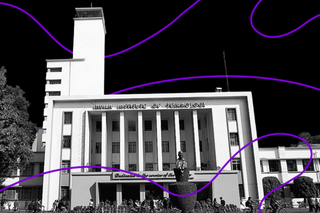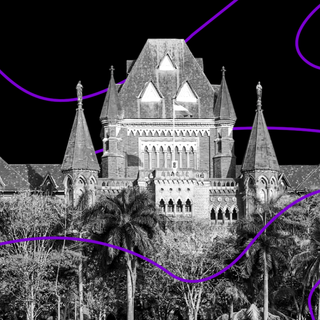
IIT Kharagpur Professor Filmed Using Casteist Slurs Once Published a Study on Social Inclusion
The incident shows that scholarship on the struggles of the marginalized does not always translate into allyship.

An associate professor at IIT Kharagpur used derogatory remarks and made casteist statements in an online class, attended by engineering students who are from Scheduled Castes and Scheduled Tribes, and those with disabilities.
The video shows Seema Singh, a professor of English in the Department of Humanities and Social Sciences, using swear words against students who did not stand up for the national anthem, humiliating a girl who couldn’t attend class due to the death of a grandparent, and further insulting students and their parents for low attendance and keeping cameras switched off during the class. These videos were first posted anonymously on the IIT Kharagpur confessions page. It is unclear when these videos were recorded, and if they belong to one class or multiple classes.
The video is an example of the disdain and contempt directed at marginalized students without a fear of consequences as if the system is designed to protect these transgressions. What’s further worrying is that the video may reflect the attitude of several professors in elite institutions — especially those responsible for educating and supporting marginalized students.
IIT’s preparatory classes are for students who missed out on taking the Joint Entrance Exam (JEE) that ensures admissions into the institutes. After these classes, students receive admission either via their performance in these classes or via a re-take of the JEE. Seema Singh was taking one of these classes. Beyond abusive language, the professor further taunts marginalized students by saying, “The professor at IIT KGP is all-powerful… What I have to do, I will do. You can go to the Ministry of Women and Child. Go to Ministry of SC, ST, and Minorities (sic). Nothing can prevent me from doing what I have to do to you.”
After the videos went viral, social media users discovered that Seema Singh had previously authored a research paper titled “Learning to learn from the Other: Subaltern life narrative, everyday classroom, and critical pedagogy.” In complete contrast with the casteist rant, Singh’s research paper states, “When society is marred with issues of class, race, caste, gender, color, and of many other dehumanizing (human) problems, the practice of education can no more remain uncritical of what is going on, why, and in whose interest.”
This begs the question: how can individuals who actively research the perspective of marginalized people be prejudiced?
Related on The Swaddle:
There Is No Such Thing as Achievement Through Pure Merit
‘Subaltern studies’ is a research canon used to group together academic scholarship around issues affecting marginalized people from a post-colonial (or post-imperial regime) perspective in order to understand and address discriminatory social hierarchies. Since its origin, Indian scholars involved in subaltern studies are predominantly privileged caste individuals, whose experience of marginalization is from the perspective of British colonial oppression. However, some privileged caste academics seldom turn the reflection and criticism inward to examine how colonial structures of privilege still play out today.
“I speak as an insider, a whistleblower. I come from precisely this class of upper-caste diasporic intellectuals,” Ananya Chakravarti, a professor of history at Georgetown Universityin the U.S., writes in The Wire. “The big secret of South Asian postcolonial theory is that its obfuscatory language – signaling sophistication to mere mortals – actually hides power.” Chakravarti further states some ‘progressive’ scholars continue to put forth theories that defend their privilege, rather than exploring their complicity.
Similar, but more transparent, issues of privilege and power replicate themselves within the Indian education system too. The Indian education system favors privileged caste achievement, as it rewards those with access to money, social and educational capital — often gatekept by privileged castes.
This particular contempt against individuals from oppressed castes is significant in the IIT system: researchers have recorded Brahmin supremacist attitudes, a lack of SC/ST/OBC support cells, a heightened risk of suicide among oppressed caste students, and an institutional insistence on doing away with reservation.
Some privileged-caste academics then become complicit in enabling the hierarchies they rally against in their research. Seema Singh’s diatribe against her students could be perceived as a wanton display of power, or mere disregard for common decency. But clearly, learning about marginalized individuals does not equal empathizing with them.
Aditi Murti is a culture writer at The Swaddle. Previously, she worked as a freelance journalist focused on gender and cities. Find her on social media @aditimurti.
Related


Vaccinate Arrested People Above 45 Years Before They Are Sent to Prison: Bombay HC
